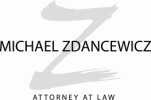 In bankruptcy cases, the law generally provides a higher payment priority to secured creditors. By removing liens through a procedure known as lien stripping, a Chapter 13 debtor is empowered to turn secured creditors into unsecured ones.
In bankruptcy cases, the law generally provides a higher payment priority to secured creditors. By removing liens through a procedure known as lien stripping, a Chapter 13 debtor is empowered to turn secured creditors into unsecured ones.
Stripping a lien can only be applied to mortgage debt. If a debtor owns a home and its value is less than the liens on it, the procedure will “strip” the second and any other subsequent mortgages, literally removing them from public records. The subordinate debt must be wholly unsecured to strip the lien. The remaining first mortgage will remain a secured debt, but the other mortgages transform into unsecured debt, which reduces the likelihood of their being paid in full. There are many conditions, or hoops, the debtor must get through to strip a lien.
There are measures in place to protect creditors against lien stripping. Working with an experienced and knowledgeable Arizona creditor’s attorney can be a tremendous help. If you would like more information about lien stripping in bankruptcy, creditors’ rights, or if you need assistance from an attorney, contact Windtberg & Zdancewicz to schedule an initial consultation.
The attorneys at Windtberg & Zdancewicz, PLC, provide clients with experienced legal representation in all collection matters. We are experienced in creditor’s rights including garnishments, charging orders, attachment, property execution, trustee’s sales, foreclosures, judgments, judgment collection, domestication of foreign judgments, and creditor’s issues in bankruptcy cases. If you need assistance with your collection matters, please contact us at (480) 584-5660.




